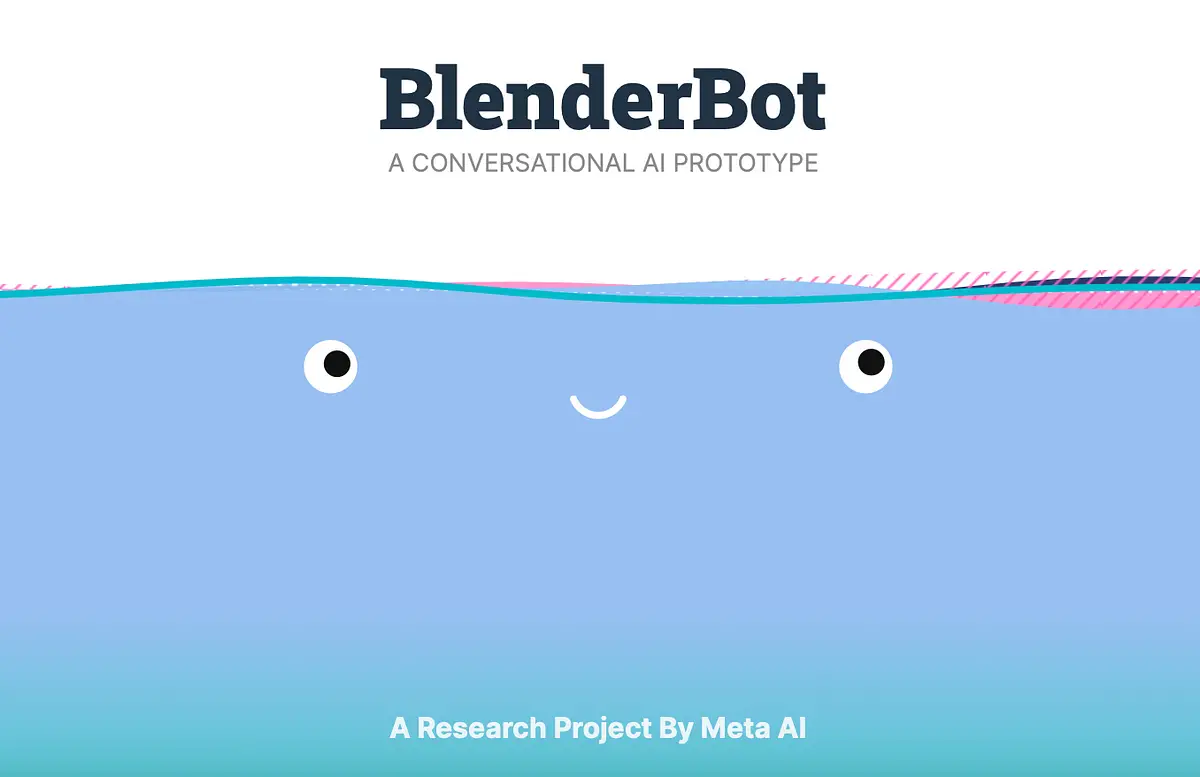Introduction
In a significant leap towards more natural and engaging human-AI interactions, Meta AI has unveiled its cutting-edge chatbot, BlenderBot 3.
This advanced conversational agent is designed to converse seamlessly with users, harnessing their feedback to continually refine and enhance its responses.
Meta AI, often referred to as Web 4.0, is a revolutionary concept that goes beyond the realms of traditional AI systems.
It delves into the domain of creating machines that can comprehend and process information at an unprecedented depth.
Unlike its predecessors, Meta AI doesn’t merely respond to predetermined commands; it comprehends context, learns from interactions, and adapts dynamically.
The Chatbot Revolution: From Syntax to Semantics
Chatbots have come a long way since their inception. The transition from rule-based systems to machine learning-powered bots marked a significant leap.
However, the true metamorphosis is happening now, with Meta AI chatbots taking center stage. These bots possess a profound understanding of semantics, nuances, and intent in conversations.
They’re capable of engaging in natural language dialogues that mirror human interaction, transcending the limitations of scripted responses.
Meta AI’s Building Blocks: Natural Language Understanding
At the heart of every powerful Meta AI chatbot lies Natural Language Understanding (NLU). This technology empowers bots to grasp the underlying meaning of words, sentences, and even entire conversations.
By leveraging advanced techniques like sentiment analysis, entity recognition, and context preservation, Meta AI chatbots decipher the intricate layers of human communication.

BlenderBot 3: Pioneering the Future of Conversational AI
Meta AI has introduced BlenderBot 3, a state-of-the-art chatbot that can engage users in natural conversations, imitating human-like responses with an impressive level of adaptability.
The chatbot’s abilities are built on Meta’s publicly available OPT-175B language model, which is an astonishing 58 times larger than its predecessor, BlenderBot 2.
This scale enables BlenderBot 3 to incorporate conversational skills such as personality, empathy, and knowledge, significantly improving engagement and meaningful interactions.
Prioritizing Safety, Ethics and Responsibility
Aware of the concerns surrounding AI chatbots’ potential for unsafe, biased, or offensive outputs, Meta AI has undertaken extensive research and development to implement safeguards in BlenderBot 3.
Through large-scale studies, workshops, and innovative techniques, Meta AI has worked diligently to mitigate inappropriate responses. Despite these efforts, instances of rude or offensive comments may still occur.
To address this, Meta AI is actively collecting user feedback to fine-tune and enhance future iterations of its chatbots.
The Promise of User Feedback
Meta AI’s commitment to improving its AI chatbots is evident through its interaction-based approach to learning. BlenderBot 3 learns from interactions and continuously refines its responses based on user feedback.
This iterative learning process ensures that the chatbot evolves over time to provide more accurate and relevant responses to user inquiries.
Performance and Progress
Comparative analysis shows BlenderBot 3 outperforms its predecessors, exhibiting a 31% improvement in conversational tasks and a 47% reduction in factual inaccuracies.
Additionally, the chatbot displayed a remarkably low rate of rude or inappropriate responses, flagged at only 0.16%. These advancements underscore the potential of AI-powered chatbots to enhance user experiences across various domains.
Meta AI’s Vision for the Future
Meta AI’s foray into diverse AI personas on its social media platforms, including Facebook and Instagram, is another exciting development.
With the potential launch of chatbots embodying various personalities, users can expect engaging and interactive conversations that cater to their preferences.
However, as AI technology advances, Meta AI remains cognizant of the challenges posed by privacy concerns and potential misuse of AI technology.
As the AI landscape continues to evolve, Meta AI is committed to driving innovation responsibly, leveraging user feedback to shape the future of AI chatbots.
By fostering collaborations and sharing insights with the AI research community, Meta AI aims to create a safer, more engaging AI environment that benefits users and developers alike.
FAQs
![]()
What is BlenderBot 3?
BlenderBot 3 is Meta AI’s latest conversational agent, designed to engage in natural conversations with users, simulating human-like interactions to provide a more engaging and useful experience.
How does BlenderBot 3 improve its responses?
BlenderBot 3 learns from interactions and user feedback, continuously refining its responses over time to ensure better accuracy, relevance, and appropriateness in conversations.
What safeguards are in place to prevent inappropriate responses?
Meta AI has conducted extensive research and development to implement safeguards against unsafe or offensive responses. Despite these efforts, user feedback remains crucial in refining the chatbot’s behavior.
How does BlenderBot 3’s performance compare to its predecessors?
BlenderBot 3 has shown a 31% improvement in conversational tasks and a reduction of 47% in factual inaccuracies. Only a minimal percentage of responses were flagged as rude or inappropriate.
What is Meta AI’s approach to AI chatbot personas?
Meta AI is exploring diverse AI personas, with chatbots emulating various personalities to engage users on social media platforms. This approach aims to enhance user experiences and interactions.
What is the potential impact of AI chatbots on user privacy?
The launch of AI chatbots could raise concerns about data collection and user privacy. Meta AI acknowledges these concerns and remains committed to addressing privacy issues responsibly.
How will Meta AI continue to advance AI chatbot technology?
Meta AI plans to collaborate with the AI research community, share insights, and leverage user feedback to drive responsible innovation in the field of conversational AI.
When can users expect the launch of Meta’s AI chatbots?
According to reports, Meta’s AI chatbots with distinct personalities could launch as early as September, offering users a novel and engaging way to interact with the platforms.

